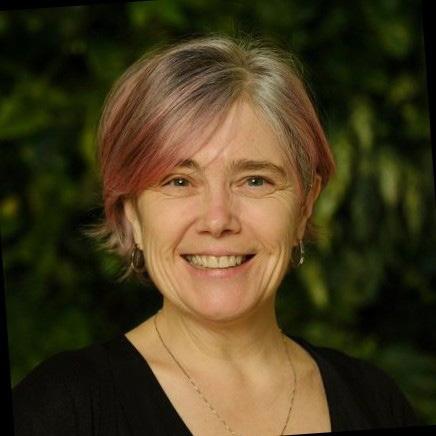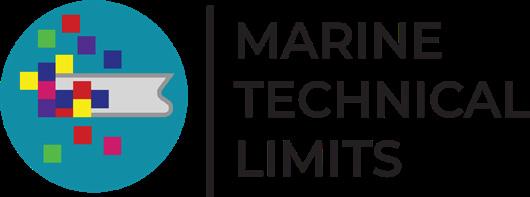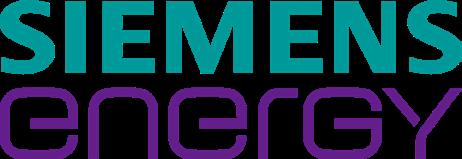
3 - 4 September | Energy Transition Campus Amsterdam
In collaboration with Shell




3 - 4 September | Energy Transition Campus Amsterdam
In collaboration with Shell


We are delighted to welcome you to the third edition of Future Digital Twin & AI, held in Amsterdam on 3–4 September 2025 in collaboration with Shell.
This year’s event has underscored just how far our industry has come in embracing digital transformation. Not long ago, digital twins and artificial intelligence were viewed as optional enhancements to existing operations. Today, they are recognised as critical technologies shaping the future of the energy sector—driving resilience, efficiency, and sustainability at scale.
Across the two days, the conversations and presentations reflected this shift. We explored how digital twins are evolving into powerful systems of orchestration, capable of optimising operations, enabling autonomous workflows, and strengthening performance across the value chain. With the integration of AI—particularly agentic AI—these systems are not only delivering tangible results but also redefining how decisions are made, accelerating processes while improving safety and sustainability outcomes.
A defining feature of the Amsterdam edition was its emphasis on the intersection of digital twin technology with advanced AI applications and their role in the energy transition. Sessions examined Generative AI, Reality Capture, Large Language Models, Integrated Value Chains, and strategies for Decarbonisation, alongside the practical and regulatory considerations of deploying these innovations responsibly. The discussions highlighted both the opportunities and the challenges, offering delegates invaluable insights to take back into their organisations.
What makes this conference truly special is the diversity of perspectives it brings together. Leaders from operators, oilfield service companies, technology innovators, and academic institutions joined forces with executives and decision-makers across disciplines to share knowledge and shape a collaborative path forward. The themes of Open Collaboration, Innovation, and Energy Transition were central throughout, underlining our shared commitment to a digitally optimised and sustainable energy future.
I would like to extend my heartfelt thanks to our sponsors, partners, and advisory board for their vital role in shaping this edition of the conference. Most importantly, I want to thank our delegates—your curiosity, engagement, and willingness to explore new ideas are what make Future Digital Twin & AI a thriving platform for progress.
As we look ahead, one thing is clear: the synergy between human expertise and advanced technologies will define the next chapter of our industry. Future Digital Twin & AI Amsterdam is more than a conference; it is a movement driving purposeful, intelligent, and sustainable transformation. We are proud to continue this journey with you.
Sincerely,
Adam Soroka CEO of Cavendish Group International
Thought leaders and technology experts driving the transformation of the energy industry shared their insights at the latest Future Digital Twin & AI 2025 conference, held at Shell’s Energy Transition Campus Amsterdam (ETCA) on 3-4 September.
The conference, organised by Cavendish Group International in collaboration with Shell, attracted a record attendance from organisations across the energy and technology sectors.
Attendees were able to take advantage of the extensive learning and networking opportunities on offer at an effervescent forum to discuss how artificial intelligence is already revolutionising not just the implementation of digital twins in the oil and gas sector, but also the way the whole energy industry works.
Speakers at the conference represented a range of key players in the industry including Shell, ExxonMobil, Aramco, AkerBP, MOL, Equinor, DNV, Baker Hughes, Siemens Energy and many more.
A major theme in this third staging of the annual event at the ETCA was the growing maturity of AI implementation in the industry, which means the focus has broadened out from proof-of-concept projects to scaling-up AI-driven projects to a level where they need to start making a serious positive impact on the bottom line.
Other popular topics at the event included continuing efforts to drag historical data out of filing cabinets and into the digital system, how to win more trust in AI-generated results, the need to make the AI transformation inclusive by taking the whole workforce on the journey together – and how collaboration within and between organisations is key to success.
Adam Soroka, CEO of Cavendish Group International, told the event the introduction of AI and digital twins was creating a paradigm shift in the oil and gas industry, enabling autonomous decision making, continuous learning and greater interconnectivity driven by a spirit of cooperation.
“A big reason so many people attend this event is their desire to explore open collaboration and innovation and create new partnership models. It has become a real marketplace for technology providers, operators and oil services companies to discuss solutions for digital twin technology,” he said.
Shane MacArdle, CEO of digital twin developer Kongsberg international and a leading panellist at the conference, said bringing together industry leaders, innovators, and practitioners helped ensure technologies were harnessed responsibly and effectively at a time of accelerating change.
“It’s inspiring to see how the Future Digital Twin community has grown over the past six years – the shared learnings from attendees reflect how quickly the landscape is evolving. Yet at its core, this gathering is about people: connections, exchanging ideas, and building the future together,” he said.

Here’s what some of the experts said at Future Digital Twin and AI (Amsterdam) 2025:

SOFIA SILVESTRE
AI Delivery Manager, Galp: “Start small with targeted wins but scale fast, create an AI roadmap based on business value, and adopt cross-functional collaboration.”

LOUISE IBBS
Digital Lead, Digitalisation Pernis, Shell: “We get very excited about technology, but we also need to get excited about people interacting with that technology.”

ACHILLES GEORGIU
Head of Data, AI & Innovation, MOL: “Putting AI on top of a process like ketchup will not solve all your problems – you need to consider AI as an enabler of business transformation.”

NADUN MUTHUKUMARANA
CEO, V2T: “Next generation digital twins are now core to $100m-plus value delivery”

GERRIT TJALLEMA
GM, Transformation & Excellence, Shell: “We need to be honest about what we do and don’t know about AI and go on the journey of change together.”

CHRISTIAN FARRA
Director & Practice Leader, Data Supply Chain, Informatica: “A digital twin is only as smart as the data that feeds it. Prioritize high-quality, trusted data before scaling your twin’s capabilities.”
300+ attendees with deep industry experience organisations
sponsors & exhibitors
meetings arranged

AI-driven digital twins are now firmly embedded in the energy sector
Digital twins and AI-driven processes are part of everyday life for many in the oil and gas industry.
As Shane MacArdle, CEO of digital twin developer Kongsberg International, told the conference: “Digital twins are already business-critical in many sectors. If you switch one off, the asset will still run – but it won’t be as competitive.”
Nadun Muthukumarana, CEO of AI solutions provider V2T, said digital twins were starting to add serious value to the bottom line.
“Next generation digital twins are now core to $100m-plus value delivery,” he said
Think big, start small, scale fast
AI applications are changing the industry, but they are expensive and so need to scale up fast, panellists said.
Sofia Silvestre, AI Delivery Manager at Galp told delegates that organisations need to adopt a value-driven approach to achieve business impact using AI
“Organisations need to adopt a value-driven approach – start small with targeted wins but scale fast, create an AI roadmap based on business value, and adopt cross-functional collaboration,” she said.
The need to scale up to obtain full value from digital solutions is reflected in a more aggressive attitude towards AI implementation.
“Winning companies are starting to demand that digital initiatives pay off in 12 months,” V2T’s Muthukumarana said.
Tarun Dhall, Lead, Digital Offerings, Compressions Business, Siemens Energy told the conference: “Don’t wait for everything to line up across the company. Find that one use case for which you have the data and move to develop agentic AI applications for that”
Holistic thinking is vital when implementing AI.
“Putting AI on top of a process like ketchup will not solve all your problems – you need to consider AI as an enabler of business transformation,” Achilles Georgiu, Head of Data, AI & Innovation, MOL told the conference.
A tailored approach to the technology needed to be adopted, according to many speakers. Different assets and businesses have different realities and expectations. One size does not fit all for digital twins, so a modular approach is key to success.
AI is not perfect, but the benefits outweigh the
Misleading output from AI continues to be a major problem for winning trust in the technology, so rapid identification of “hallucinating” AI should be a top priority. But that should not deter companies from adopting AI, panellists said.
“The question is not whether we can trust AI, but whether we can afford not to. The output from AI may have its shortcomings, but these are likely to be outweighed by the benefits in the long run,” said Achilles Georgiu, Head of Data, AI & Innovation, at energy firm MOL.
Christian Markussen, Global Practice Lead for Digital Twins and Technology Qualification, at DNV said there was a delicate balance to be struck.
“If users have low trust in an AI-driven system, they won’t use it and that will kill your business model. But too much trust is also a concern, since it can lead to complacency which again can result in unsafe or costly actions. So a good understanding of a system’s capabilities and limitations, and howWW it interacts with the user, is vital,” he said
“You must put people at the centre of everything you do,” according to Galp’s Sofia Silvestre.
That was a sentiment shared by Louise Ibbs, Shell’s Digital Lead, Digitalisation Pernis, who told delegates: “The human element is often overlooked. Humans create the data and consume the data. Computers do not make the decisions – we are the interpreters and gatekeepers. We get very excited about technology, but we also need to get excited about people interacting with that technology.”
Panellists said it was vital for the leadership to bring the workforce along every step of the way when adopting an AI.
“Obtaining trust is very hard but losing it is easy. It’s not all about the technology, it’s about the people,” MOL’s Achilles Georgiu said And persuading people to adopt AI means making it user-friendly, according to Kongsberg’s Shane MacArdle.
“We dedicate as much effort to the user experience of AI as we do to the technology itself. You need to make it simple to use, because widespread adoption is crucial to achieving a return on investment at scale,” he said.
The industry needs to collaborate, both within and between organisations, to speed up successful use of AI-driven applications.
“AI capabilities are only going to continue to grow, with asset owners owning and maintaining the semantic data in an interoperable format. Allowing multiple contributors will accelerate the pace of change,” Michael Hotaling, Technology Scouting, Innovations & Ventures Executive Advisor at ExxonMobil, said.
Gerrit Tjallema, GM, Transformation & Excellence at Shell told the conference that collaboration was crucial to make the sweeping changes necessary for effective AI implementation.
“We need to be honest about what we do and don’t know about AI and go on the journey of change together within the organisation,” he said.
Panellists said asset performance management was embracing AI, but many teams were still doing this in siloes, which increased the chance that AI-driven projects would fail to be adopted. These need to be broken down.
“A digital twin is only as smart as the data that feeds it. Prioritize high-quality, trusted data before scaling your twin’s capabilities,” Christian Farra, Director & Practice Leader, Data Supply Chain, at Informatica told the conference.
That effort also needed to be applied to data standardization.
“The most expensive part of the digital twin is not the technology, it is the data. If you standardise that data, it’s going to get much cheaper to obtain from the supply chain, simpler to manage and access in the source applications and easier integrate in the digital twin,” Anders Thostrup, Principal Engineer, Data Standards at Shell, said.
…But
Panellists agreed that data standardisation across large, decentralised organisations remained challenging and that companies needed to put in structures to address this issue, but they said progress was being made.
“We’ve been doing a lot of work on the relevant standards over the last 15 years, and they are now getting to a point where they really can add value in putting a digital twin together, both when specifying data requirements to the external supply chain and when seeking to manage consistency of data across disciplines and application landscapes that feed the digital twin internally,” Shell’s Thostrup said.
ExxonMobil’s Michael Hotaling said companies needed to adopt a flexible approach to data.
“The industry has changed to a point where data interoperability has become the norm expectation. Users should not be wedded to one hardware or software supplier,” he said
Panellists said clear data ownership and governance was crucial to get the most out of digital twins, especially to enable information sharing around commercially sensitive information.
Cooperation between the industry and academia, and between companies, creates a great dynamic to accelerate AI advances, but sharing proprietary information remains challenging, they said.
‘’This event has evolved significantly over the years, it now attracts the leaders in the industry, and they are also gladly sharing not only their successes, but also their challenges, learnings, and mistakes.
The mix of short presentations from selected partners and participants – mixed with the debate style conversations between knowledgeable panelists gives this event a different flair -up on its competitors.. it’s a well spent couple of days.’’
RAGNAR ALSTAD, Head of Digital & Innovation, Eager
“It was a great convergence of the art and science of digital twin/AI in the O&G industry. The program’s themes were thoughtfully curated, and the quality of participants was top-notch, fostering insightful discussions and networking opportunities. Thank you for including me in such a prestigious event.”
GERRIT TJALLEMA, GM, Transformation & Excellence, Shell
“The Future Digital Twin conference was impressively well attended, bringing together a broad spectrum of professionals from across the sector and service providers. While there was plenty of discussion around the opportunities and risks associated with AI, the key takeaway for me was the critical importance of capturing high-quality data. Good data is the foundation upon which AI can truly deliver value—enriching, analysing, and processing it to drive meaningful insights.”
CALUM MACLEAN, Projects Director at Marine Technical Limits

“Great event in Amsterdam last week! FDT and AI gathered a large number of people from the oil and gas industry. The program spanned from strong use cases to the risk and safety aspects of building trustworthy industrial AI solutions. Open collaboration and knowledge sharing are among the most important achievements of this conference and an important catalyst in the energy transformation journey.”
LARS MELOE, Principal Consultant, DNV Digital Twins, Ansys
“The Future Digital Twin was a great forum to discuss the impact of technology in the operations that energy technology and industrials carry on. I learned more about the challenges and opportunities our customers, peers, and suppliers see, and the pace of adoption of these technologies in their organizations.”
EULOGIO BARRAGAN GONZALEZ, VP Product Management, Baker Hughes
“#FDTAM brought together insightful discussions on technology, AI, security, and data. What resonated with me most was the focus on the human element—how critical it is in learning and applying new technologies like AI safely and effectively. The keynotes offered a clear picture of the evolving role of people in this dynamic landscape. A valuable event.”
STEPHANIE GOSEINE-MINDERHOUD, Senior Transformational Change Partner, LyondellBasell
“It was a fantastic experience with many intriguing themes and the chance to foster collaboration across various fields. I particularly enjoyed the setup with short presentations and panel sessions. The topics on building trust in AI and how to engage personnel on this journey were especially fascinating. The event attracted a diverse group of participants, all highly skilled and eager to collaborate.”
KRISTI BEATE OVESTAD GILJARHUS, Manager, Digital Engineering, Integrity & Maintenance Management, Equinor
“The Future Digital Twin Conference in Amsterdam was an outstanding experience. The combination of inspiring keynotes, panel discussions, and our Siemens Energy workshop ‘From Pilot to Production’ highlighted the strong relevance of the topic and the tremendous interest from the community. What impressed us most was the high-caliber audience—eager to collaborate, share ideas, and shape the future together. A big thank you to the organizers for creating such a vibrant platform for innovation and exchange.”
MARTINA SAUER, Digital Products and Solutions, Customer Success, Siemens Energy Global GmbH & Co. KG
“It was a great event pulling together an ecosystem of SMEs from domain, data science, and AI. It is with this confluence of expertise that transformation is driven, and the event met its objective of bringing out the key areas where we need to converge.”
NIKHIL KHURANA VP, Enteprise Sales and Pre-sales, Baker Hughes
“The 2025 Amsterdam edition was another resounding success. The balanced mix of operators and suppliers, along with the vibrant atmosphere for discussions and seamless networking, greatly contributed. What stood out most to me were the high-quality insights on current digital twin and AI developments in the energy sector, leveraging the wealth of expertise shared through panel sessions and presentations.”
DR. OSCAR ABBINK, Director of Global Energy Technology and Innovation at S&P Global Commodity Insights
“The conference was well organised, with a healthy split of presentations, roundtable discussions, and workshops covering many angles of Digital Twin. Discussions during the breaks were equally important, as we could meet with experts from similar companies around the world and talk to providers who understand our business well. One thing to consider for the future is organizing workshops where people can share their failures, as learning from mistakes can often be more valuable than just sharing shiny, successful projects.”
ACHILLES GEORGIU, Head of Data, AI & Innovation, MOL

“Thank you for organising and hosting an excellent, interactive, and informative event, which enticed learning, quenched my curiosity, and encouraged collaboration across industry partners and vendors. I can’t wait to utilise my new or refreshed connections to address our common challenges together. See you next year.”
SUSAN BURRELL, Digital Product Manager, Projects & Technology, Shell
“In Amsterdam, I was once again impressed by how the Future Digital Twin & AI Conference continues to grow — not only in scale, but in the depth of dialogue and substance. This is the place where a truly global community of practitioners and leaders comes together to advance awareness, share experiences, and push progress forward. For anyone serious about being part of that journey, this conference is where it happens.”
HAAVARD OESTENSEN, CCO, Kongsberg Digital
“An intensive exchange of skills, strategy, and vision—centered on digital twin technology.”
DANIEL REIME, Director, Aramco Digital
“At Future Digital Twin and AI – Amsterdam, I found a true community genuinely committed to sharing knowledge and experiences. The event brought together speakers with deep expertise, offering valuable insights across the sessions, all supported by a well-structured and carefully coordinated agenda. For me, as someone working in this sector and focused on delivering technology, it was a unique opportunity to gain awareness of the latest use cases and achievements shaping the industry.”
SOFIA SILVESTRE, AI Delivery Manager, Galp “Future Digital Twin provides an excellent platform for ecosystem partners to not only define the path of innovation but also reflect on their practical experiences. This dual approach— vision and reflection—enables a more pragmatic and inclusive journey for all stakeholders.”
SHUBHAM RAJVANSHI, Senior Director & Client Partner, L&T Technology Services
“The Future Digital Twin event is incredibly important for our industry. With the rapid pace of digitalisation in the oil and gas sector, it’s vital that we come together as professionals to share our experiences, discuss the pressing challenges we’re facing, and celebrate the success stories. The calibre of both the speakers and the participants was exceptional, and the themes of the conference were spot on. One of the best, must-attend events of the year.”
JOHN WALDEN, Chief Technology Officer (CTO), Marine Technical Limits
“Coming to the FDT event is always exciting— it is an opportunity to catch up on various elements of new technology and ways of working. It is also a great place for networking around the urgency and value of change management to enable tech improvements. It is clear that industry leaders are putting more emphasis on people leadership as a key prerequisite and enabler to capitalize on technology.”
JAN TORE NYGÅRD, Senior Manager People & Organisation at Equinor

Khaled Al Blooshi, VP, Digital Projects & Innovation, ADNOC
Nina Reiersgaard, Chief Engineer Data & Analytics, Equinor
Martin R. Gonzalez, PhD, Innovation & Technology Principal, bp
Dr Chris Cooper, Executive Advisor, Group Digital & Cyber Security, Former CEO AIQ
Ram Seetepalli, Director, Data & Analytics & Digital Innovation, Motiva Enterprises LLC
Athicha Dhanormchitphong, Digital Realities Ecosystem Architect, ExxonMobil
Rolf Einar Saeter, Global Emerging Technology Lead, Shell
Udayan Vyas, Connected Worker, AI Lead, Chevron
Reza Khaninezhad, Data Science Manager, Apache
Ram Nutakki, Digital Transformation Manager, INEOS
Ashraf Wardeh, IT Director, DAC Digital Program, Oxy
Seth Taylor, Smart Facilities Manager, Chevron
Justin Piwetz, Asset Management Lead, bp
Shane McArdle, CEO, Kongsberg Digital

Gerben De Jong, SVP IDT & CIO, Integrated Gas & Upstream Projects & Technology, Shell
TWO)
Mike Ioannou, GM, Global Digital Programs & Products, Shell
KEYNOTE PRESENTATION
Michael Hotaling, Technology Scouting, Innovations & Ventures Executive Advisor, ExxonMobil
SPEAKERS
Tekin Mentes, Chief Data & AI Officer, Shell
Daniel Reime, Director, Aramco Digital
Achilles Georgiu, Head of Data, AI & Innovation, MOL
Thorsten Loehl, VP, Science & Engineering, Innovation, Borealis
Kristi Beate Ovestad Giljarhus, Manager, Digital Engineering, Integrity & Maintenance Management, Equinor
Oddgeir Gramstad, Advanced Data Scientist, AkerBP
Rolf Einar Saeter, Global Emerging Technology Lead, Shell
Alejandro Macho Aroca, PhS, Head of Global Cybersecurity, GEM, Iberdrola
Sarah Street, GM, ETCA Director, Shell
Jan Tore Nygard, Manager People & Organisation, Equinor
Shanjoy Malkani, Global Product Owner, Digital Twin, Shell
Stephanie Goseine-Minderhoud, Senior Transformational Change Partner, LyondellBasell
Rishabh Chopra, AI & Emerging Digital Technologies Lead, Shell
Mahad Nadeem Janjua, Data Scientist, Harbour Energy
Karina Fernandez, GM Digital Innovation & Emerging Technologies, Shell
Mikael Wallen, IT & Data Delivery Lead, Operation, AkerBP
Anders Thostrup, Principal Engineer, Data Standards, Shell
Sofia Silvestre, AI Delivery Manager, Galp
Nikhil Khurana, VP Enterprise Sales and Pre Sales, Baker Hughes
Rei Yasumuro, Global Director of Digital & Analytics, MODEC
Gerrit Tjallema, GM, Transformation & Excellence, Shell
Giovanni Bechini, Director, Digital Products & Solutions, Siemens Energy
Shane McArdle, CEO, Kongsberg Digital
Bjarki Gudmundsson, Digital Manager, CDO, Shell
Erlend Johannessen, Data Engineer, FieldTwin, AkerBP
Ben Smith, Director, AI & Solutions, Baringa
Dr Michael Wiedau, Chairman of the Board, Data Excellence Expert, DEXPI & Evonik
Arnie Hagen, Digital Portfolio Manager, AkerBP
Joe McDonald, Technology Manager, Hazid Technologies
Louise Ibbs, Digital Lead, Digitalisation Pernis, Shell
Tandon Oberoi, Director, Energy & Resource, Baringa
Christian Markussen, Global Practice Lead for Digital Twins and Technology Qualification, DNV
Haavard Oestensen, CCO & EVP, Kongsberg Digital
Rao Vankamamidi, VP, Process Industry, Europe, L & T Technology Services

Shubham Rajvanshi, Senior Director& Client Partner, L & T Technology Services
Oscar Abbink, Ph.D., Director Energy Technology & Innovation, S & P Global
Eulogio Barragan Gonzalez, VP, Product Management, Baker Hughes
David Rocha, Director, Product Management, Enablon
Anne Van Ee, IT Manager, Hydrogen Production, Shell
Madalina Florean, Director of AI, Cadmatic
Bhoanae Tayali, Manager, Baringa
Karen Westley, VP, Sustainability, Shell
Matthias Boelke, Chairman, IDTA
Tarun Dhall, Lead, Digital Offerings, Compressions Business, Siemens Energy
Ragnar Alstad, Strategic Business Consultant, Eager
Christian Farra, Director & Practice Leader, Data Supply Chain, Informatica
Susan Burrell, Digital Product Manager, Projects & Technology, Shell
Victor Bommelaer, VP Sales, Samp
Lena Myers, Sustainability Strategy Advisor, Shell
Sreenivas Raghavendran, Commercial Partner Manager, GameChanger, Shell
Meaghan Snethlage, VP of Business Development, VEERUM
Lars Meloe, Principal Consultant, Digital Trust, DNV
Nadun Muthukumarana, CEO, V2T
Keshav Sundaresh, Global Director of Product Management, Altair
Calum MacLean, Projects Director, Technical Marine Solutions





















